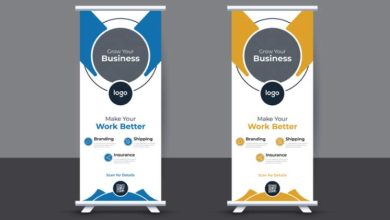Why you might be paying for a co-worker’s 401(k) expenses

Employees who participate in a 401(k) plan their employer offer to pay fees for various related services. One of them is the expense of managing the plan, which includes keeping track of daily changes in account value, arranging trades, and sending investors reminders regularly.
Yet, depending on your employer’s retirement plan, you can unintentionally be paying your co-workers’ 401(k) expenses.
The dynamic depends on your investments and how the 401(k) plan covers overhead fees.
Like participants in the larger financial industry, retirement savers might not be aware of the fees they pay. Instead of asking clients to pay a check, several financial institutions, both inside and outside the 401(k) ecosystem, frequently charge an annual fee directly from their accounts.
Note: south florida estate planning attorney is crucial for planning for the outcome that you want to have when you pass away.
The same applies to mutual funds in 401(k) plans.
A “revenue-sharing” fee could be a part of the overall cost of such funds (also referred to as a 12b-1 fee, a distribution fee or a shareholder services fee, for example). This fee is collected by the fund manager and given to the 401(k) plan administrator.
Many plans use this backend to fund the record-keeping and other services offered by large 401(k) administrators, including Fidelity Investments, Empower Retirement, and TIAA-CREF.
Revenue sharing is more prevalent in smaller plans.
Callan, a consulting firm, reports that only 8% of 401(k) and other business retirement plans employ revenue sharing to cover plan administration costs. It decreased from roughly 40% a decade earlier to 16% last year.
The Callan survey reveals that its incidence may not be as broad as it appears. Most respondents have among the largest employer retirement plans in the nation, with worker savings totalling more than $1 billion.
Yet, smaller 401(k) plans tend to use revenue sharing more frequently to cover costs. According to a second survey by the Plan Sponsor Council of America, an employer trade association, over 40% of firms use funds with revenue sharing, and around 75% of those employers use the fees to pay for plan expenses.
Note: For the best facials in plantation contact or go to Sparkling Beauty Day Spa. These licensed esthetician’s provide quality service and a reasonable price.
Workers may experience some inequities.
Because it takes place behind closed doors, this fee-sharing is a murky practice. However, due to the practice, some employees may pay more for 401(k) management than their peers, essentially funding the service for their co-workers.
This is because some investment funds do not charge a revenue-sharing fee. For instance, such a fee is more frequently assessed by actively managed funds than index funds. (There are some exceptions.)
“There can be some inconsistencies in terms of who’s paying for what,” said Greg Ungerman, senior vice president at Callan and head of a team that deals with corporate retirement plans.
The dynamic means that a saver who only invests in index funds may not be required to pay any revenue-sharing fees for 401(k) plan expenses, whereas a worker who only invests in actively managed funds may be required to pay the fees.
As a result, even though both receive the same services, the latter foots the bill for the former.
Due to a wave of lawsuits regarding excessive 401(k) fees and federal fee-disclosure rules adopted about ten years ago to increase transparency, employers have started to abandon the practice.
Moreover, investment managers are increasingly providing investment funds without a revenue-sharing fee. Instead of receiving payment from the fund manager directly in this scenario, the 401(k) administrator would deduct a charge for their services from the employees’ accounts separately.
According to Ungerman, many employers have switched to this charge structure. This frequently takes the form of a per-participant flat cost invoiced in dollars.
Employers occasionally may not have many options because they are largely at the mercy of the investing businesses. For instance, a certain family of mutual funds may always offer revenue sharing.
But, thanks to advancements in technology, many plan administrators are now able to collect the revenue-sharing fee and return the funds to the investor who paid it as a workaround to improve the equity of the 401(k) plan. This function isn’t always accessible. Thus the employer must make the decision.
Ungerman added, “The plan sponsor is responsible for determining that.”
Note: Florida Coastal Services is a South Florida Marine service company. Expert ship water pipe insulation. We service all private yachts and commercial vessels.




